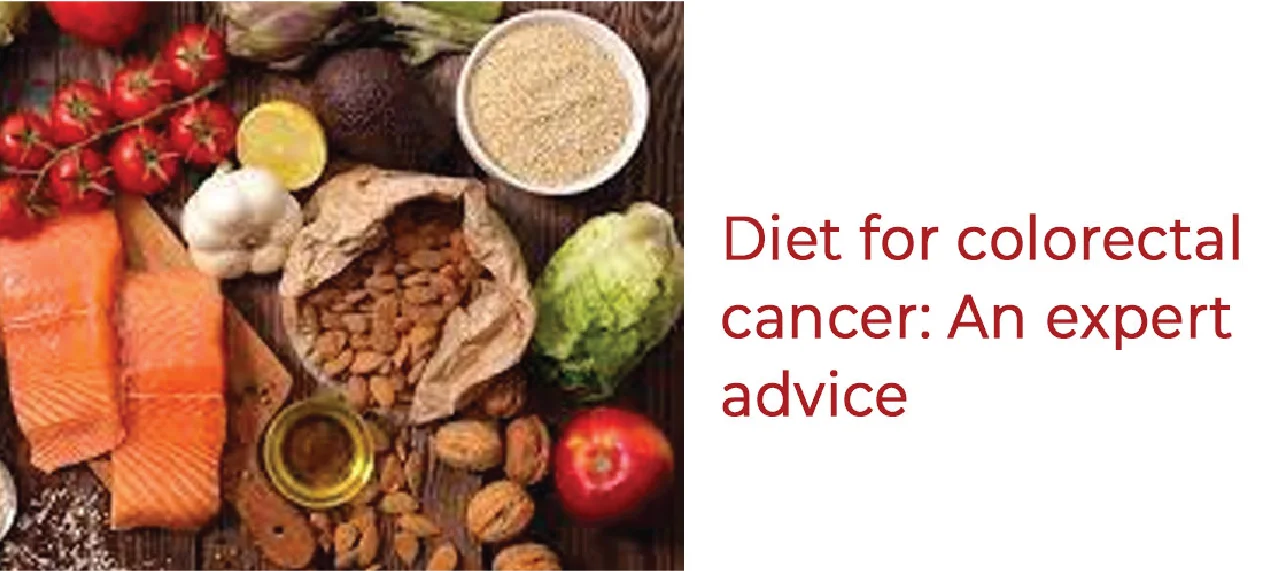While some of these are genetic, others are a result of our lifestyle choices and eating habits. Cancer is caused by unintended changes in the DNA of the cells in a particular area of the body. These changes can be triggered by various factors, some of which can be easily avoided. Colorectal cancer is one of the most common types of cancer that originates from the cells of the colon and the rectum. Cancer doctors in Jaipur suggest that healthy dietary choices can help to lower the risks of colorectal cancer significantly. Even many studies suggest that a healthy diet and an active lifestyle is the key to alleviating the chances of colorectal cancer. When we talk about diet, it is very important to understand what is good for you and what is not. There are some foods that should be avoided strictly and others that should be included in your diet on a daily basis. It can be quite difficult to understand which diet will suit you the best. Different people will come up with different solutions but you cannot simply rely on any information that is available online without judging the facts. In this blog, we have listed some of the best and the worst foods for alleviating the risks of colorectal cancer, with the help of experts specialising in colon cancer treatment in Udaipur.
- Dairy Foods – Milk and Mother Dairy items are loaded with calcium which is known to curb the development of abnormal colon growths known as adenomas. Calcium intake has also been linked with a reduced risk of colorectal cancer. You can easily find calcium supplements in the market, however, it is important to consult your doctor before taking these. Diary food items are also loaded with Vitamin D which might be beneficial in bringing down the risk of colorectal cancer.
- Whole Grains – Whole grain food items are rich in many essential nutrients. These are wonderful sources of magnesium and fibre both of which are important for improving your digestion. This naturally helps to keep your digestive tract healthy. You should include at least 90 grams of whole grains in your diet on a daily basis, be it in the form of oatmeal, brown rice or whole-wheat bread.
- Beans – Who doesn’t love beans? If you are one of those, here is a reason to add them to your diet. Beans, as well as other legumes like soya beans and peas, are packed with proteins and fibre. These are also a great source of Vitamin B and Vitamin E. The flavonoids present in beans help to stop the development and growth of tumours and the antioxidants present in them help to lower the risk of colon cancer. You can add these to your salads and soup as well.
- Veggies – Colourful veggies not only make your plate look good but also benefit you in a plethora of different ways. These are loaded with phytochemicals that are known to block the growth and development of cancer cells. These also help to bring down inflammation, which can otherwise aggravate your cancer. Although many studies are still going on, Colon Cancer doctors in Jaipur highly recommend these as a part of a healthy and well-balanced diet
- Fish – We all know that fatty fish are a great source of Omega 3 fatty acid, which is very beneficial for our heart. Many people may not know it, but Omega 3 fatty acids can also help to slow down cancer development. Replacing red meat with fish can significantly lower your risk of developing rectal cancer. However, while you are choosing fish, make sure you do not pick the ones loaded with mercury. These include Swordfish, tuna and sharks.
- Red Meat – Love eating red meat? Well, here’s some bad news for you. Taking red meat on a daily basis can elevate your chances of developing colorectal cancer. Excessive consumption of these has also been linked to a variety of different health ailments. It has been found that if meat is cooked at a very high temperature it develops carcinogenic properties. You should not take more than 18 ounces of meat in a week, and make sure that it is not overcooked.
- Alcohol – There is a common misconception that drinking moderate amounts of alcohol is not going to affect the odds of developing colorectal cancer. However, the reality is that even if you drink in moderation, your risks of developing the malignancy are likely to increase by 20%. For heavy drinkers, the rate is 40% or even more. So instead of drinking in moderation, you should give up the practice altogether.
Conclusion
At BMCHRC, our commitment to excellence extends beyond medical treatment—it encompasses holistic
care, compassionate support, and a relentless pursuit of innovation. With BMCHRC as your partner
in healing, you can rest assured that you're in capable hands, supported by a team dedicated to
guiding you towards a brighter, cancer-free future.
